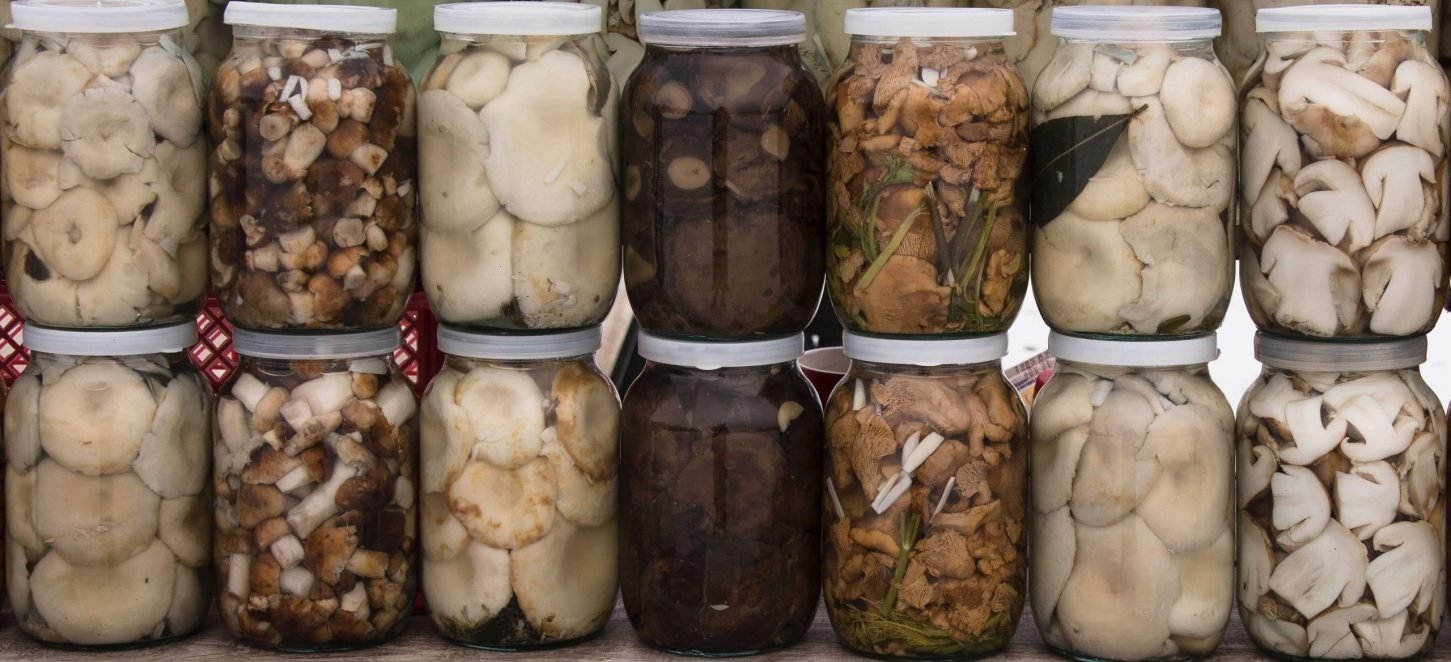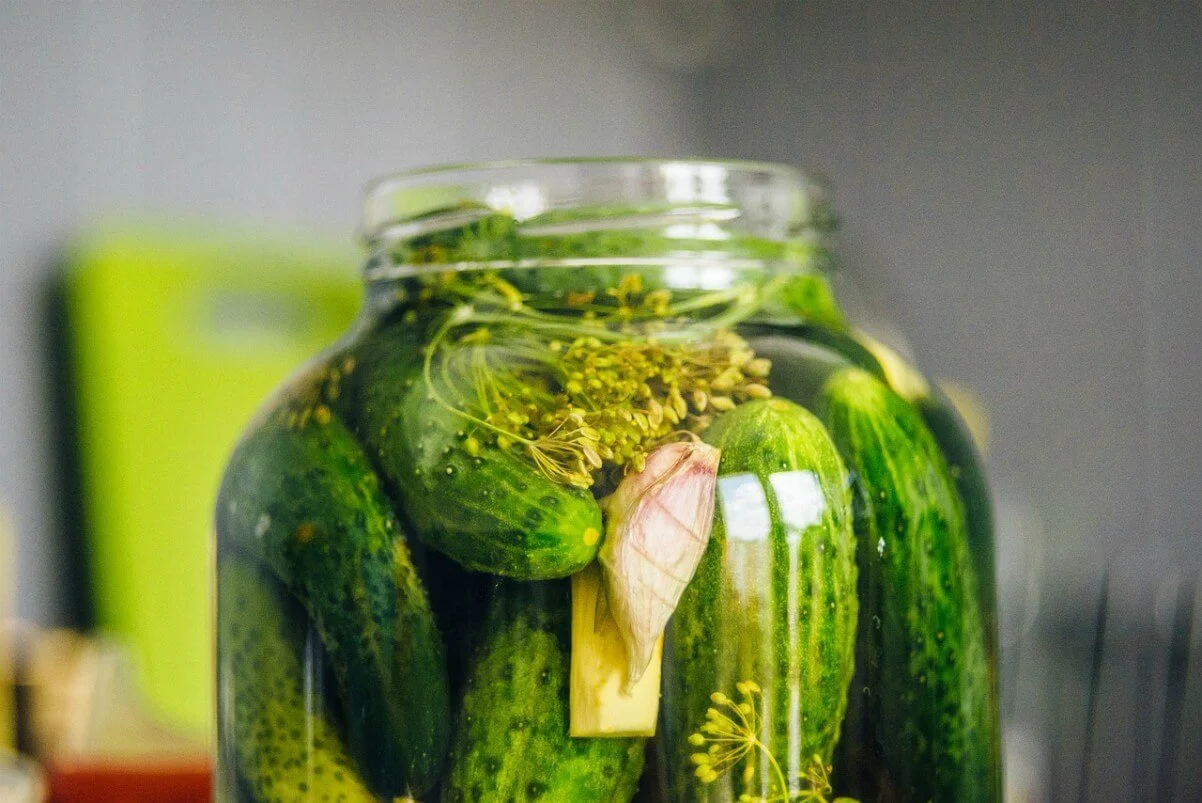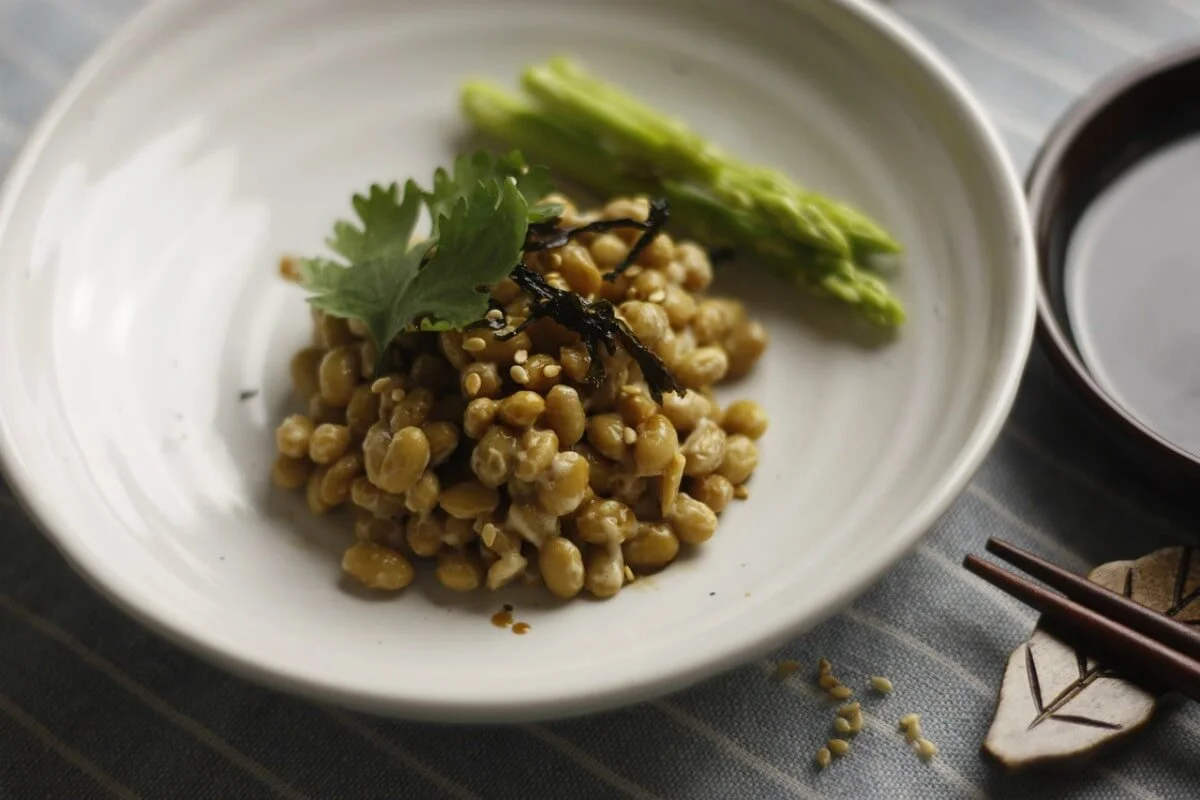Why Should You Add Fermented Foods To Your Diet?
Discover > Texas Home Cooking > Fermenting > Why Should You Add Fermented Foods To Your Diet?
“Ferments? What are those?”, asked a friend when I told her I was trying to make some at home. She may be one of the many of us who are unaware about what fermented foods (What wine goes well with fermented foods?) are or the health benefits they hold for us.
History Of Ferments
Ferments have been around since Neolithic times. The early civilizations discovered that when certain foods were left to be preserved in the presence of salts, broke down into a slightly less complex food product. This discovery was completely accidental in nature and the earliest types of fermented foods were leavened bread, beer, and wine.
It soon led to the discovery of East Asian fermented foods, pickles, yogurt, cheese, vinegar and sauerkraut (how long does sauerkraut last?). In early days, fermentation, along with drying, freezing and heating was one of the natural ways of processing and preserving food.
It was later understood that fermentation happens when microorganisms such as yeast, molds or bacteria break down complex carbohydrates into simpler peptides, polypeptides and amino acids. The bacterial fermentation produces acids that decrease the pH of food, making it more acidic. This acidifying property eradicates pathogenic bacteria and helps keep food longer on shelves.
Are Ferments Good For Us?
Fermented foods have been making sort of a comeback in the kitchens of people more dedicated towards having an organically healthy lifestyle.
The process turns food into a much more digestible form and the bacteria present in fermented foods is highly beneficial to our gut health.
Lactobacillus and Bifidobacteria are the commonly occurring bacterial strains in fermentation and they contribute to improving Bio availability of gut friendly bacteria.
Thanks for the modern American diet and lifestyle, gut inflammation and poor intestinal health runs rampant today. Fermented foods are nutritional powerhouses which infuse much needed good bacteria into our gut.
Benefits Of Fermented Foods
Fermented Foods And Intestinal Health
Why are fermented foods beneficial? Well, it is mostly because of their probiotic features. Probiotic foods eliminate pathogens and produce bioactive components. Probiotics foster a healthy intestinal balance by boosting the population of beneficial bacteria in the intestines.
Also, the organic amino acids produced in the process of fermentation, also called 'short chain fatty acids' have shown to be anti-inflammatory.
Fermented Foods And Mental Health
Fermented foods contain neurotransmitters that are necessary for sound mental health. They also contain prebiotics which are produced by the breaking down of complex carbohydrates by the bacterial enzymes. Prebiotics are food for the probiotic bacteria and hence stimulate the growth of these bacteria in the gut.
We now know that human gut microbiota is involved in physiological processes and the maintenance of overall health. There is clear evidence of a two-way relationship between mental and gut health. A study shows that depressive symptoms can be transferred through fecal transplant.
People experiencing depression have found to have higher levels of pro-inflammatory molecules in their blood. These molecules damage the good lining and facilitate the flow of gut contents to the blood which in turn increases inflammation around the body. Overtime, the increased level of inflammatory molecules in the blood can affect brain functions and exacerbate mental disorder symptoms.
Therefore, it is safe to say that having probiotic foods in our diet starts a chain reaction that reduces inflammation in the body which in turn helps maintain good mental health.
Types Of Fermented Foods
Though ferments are great addition to our diets, not all fermented foods are well, healthy. Beer and wine are classic examples of fermented foods that do not benefit your health and should be avoided.
Although here are some of the top fermented foods that you can include in your daily diet and also easily prepare at home!
Sauerkraut
Sauerkraut is lacto fermented green cabbage. It is fermented by bacterial strains found on cabbage called Lactobacillus. Sauerkraut also contains fiber, Vitamin B, calcium, and magnesium. Add 1/4 cup of sauerkraut to each meal to improve your digestive function. Sauerkraut also promotes skin health because the health of your skin is related to the health of your gut.
You can add sauerkraut do almost anything including eggs, salads and sandwiches. Make some at home with some chopped green cabbage in a glass jar with water and some sea salt (how long does sea salt last?). Another ingredient you will need is a little bit of patience as the fermentation can take at least 3 weeks.
Most health foods sell sauerkraut but buy a variety that's unpasteurized as the pasteurized ones do not contain the good bacteria.
Kimchi
Kimchi (how long does kimchi last?) basically is the Korean version of sauerkraut with added garlic, chili powder, carrots and other veggies. It also contains fiber, vitamins A and C and Lactobacillus. Kimchi is often eaten as a side dish along with the bowl of white rice.
But you can also add it to stir fries or salads. You can easily make Kimchi at home and store it for months in the fridge. But fair warning! Making kimchi at home will stink up your kitchen!
Kefir
Kefir is the name given for fermented milk rich in probiotics and enzymes.
It's slightly sour and tangy, almost like liquid yogurt. To make it at home, you need active kefir cultures and milk. Those with a dairy allergy can opt for non-dairy milks like coconut milk which also contains lauric acid and has antifungal properties. Kefir has a wider variety of bacterial cultures than yogurt, which are more effective in reducing chronic digestive systems. It could be tricky to find kefir cultures in stores, but you may check online health Stores.
Kefir bought from health stores can have more than 25 grams of sugar per serving, so consider buying plain kefir and flavoring it with frozen berries and such.
Apple Cider Vinegar
Apple cider vinegar (how long does apple cider vinegar last?) has really caught on in the health realm due to its bacteria fighting benefits. It contains a bacterial culture called “the mother”, a cloudy substance that floats at the bottom of the bottle. The 'mother' is where all the probiotics are concentrated. It is also the reason that makes Apple cider vinegar more healthy than other varieties of vinegar.
You can't really have Apple cider vinegar on its own, but you can mask the flavor by adding a few teaspoons of honey or lemon. You can also have it as a salad dressing one added to your bone broth.
Be sure to buy Apple cider vinegar that is raw unpasteurized and contains “the mother”.
Miso
Miso is Japanese for ‘fermented beans’. It is basically a soybean paste that is fermented with greens like barley (how long does barley last?) or rice and a bacterial culture called Koji. Koji is a yeast that produces a number of enzymes to support digestion. Usually miso soup is had before the main meal in order to aid digestion. While the soup is one of the most common ways to have miso, you can also add miso paste (how long does miso paste last?)to savory gravies, stir fries and salad dressings. There are sweet varieties of miso that you can add in desserts!
To make sure the probiotics are not damaged in the cooking process, do not cook miso for too long or on a very high heat.
Natto
Natto is also a traditional Japanese fermented food made from soybeans. But unlike miso, the soybeans are steamed or boiled whole and then mixed with a culture called bacillussubtilis.
The fermentation of natto produces an enzyme called nattokinase, which makes vitamin K2. Surprisingly, 1 cup of natto provides half of the daily recommended value of vitamin K. It is also an excellent source of calcium.
A study released and reported on the New York times has singled out natto to be the most significant factor in lowering risk of cardiovascular disease. It also keeps calcium adhered to the bones and can stop osteoporosis dead in its tracks.
Natto has a unique stringy, gooey texture with some people find undesirable. But compared to the health benefits that it offers, it's worth giving a shot!
Yogurt
Yogurt is made from the fermentation of milk with a yogurt starter culture. The beneficial bacteria in yogurt do not colonize your GI tract but they feed the existing gut bacteria as they pass through the intestinal tract. It is a pro biotic food that supports your gut health.
You can make yogurt at home with a dairy or non-dairy milk and some yogurt culture.
Beet Kvass
Beet Kvass is a savory, fizzy fermented drink that is well known for its healing properties. Beets (how long do beets last?) are rich in nitrates, antioxidants, and minerals so the fermentation process makes a nutritional powerhouse of all these components.
Nitric oxide in beet kvass boosts blood flow and circulation, so it is a great way to boost your energy levels.
Beet kvass can be had plain or added to soups and salads. You can make beet kvass at home by using a few peeled beetroots, sauerkraut juice, or salt and water.
It's true that fermented foods have a unique flavor and aroma. but there are so many of them so you can experiment to find out which ones suit your palate. Include fermented foods in your diet regularly to experience less bloating, improved bowel movements glowing skin and an upbeat mood.









